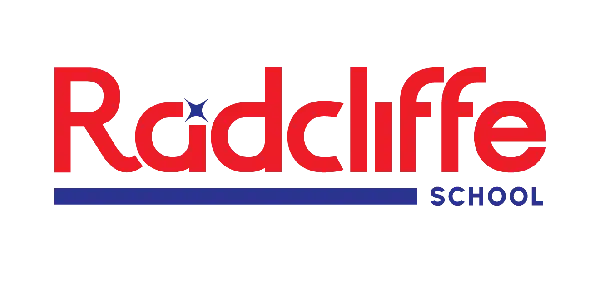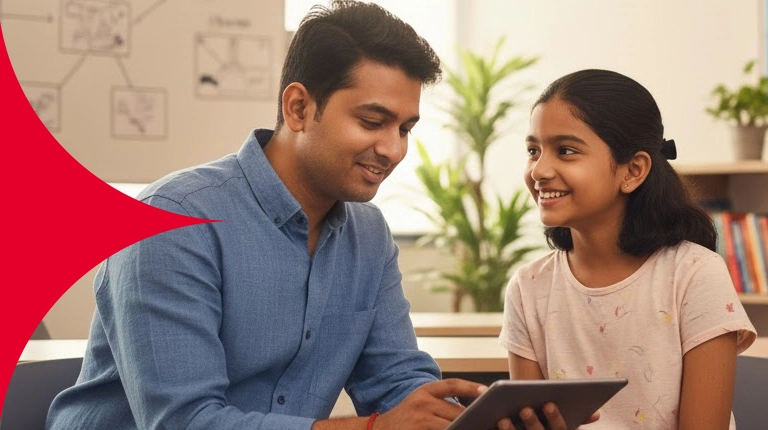In today’s diverse classrooms, we no longer ask “How smart is this child?” Instead, we ask, “How is this child smart?”
At Radcliffe IB, personalized learning is not just an instructional method—it is a therapeutic commitment. It is the conscious act of recognizing that every child carries a unique emotional world into the classroom. And unless we tap into that world with empathy and intention, we risk teaching lessons that don’t truly reach them.
In current changing educational world, the traditional methods of teaching are no longer sufficient to support the full potential of each child. The concept of personalized learning has emerged not just as a pedagogical tool, but as an essential psychological support system—one that prioritizes the emotional, cognitive, and social needs of learners. As both a clinical psychologist and school counselor at Radcliffe IB, I see personalized learning as the intersection where empathy meets education.
What Does Personalized Learning Truly Mean?
At its core, personalized learning is about understanding each child as an individual—not a label, not a grade, not a comparison.
It means asking:
- How does this child learn best?
- What makes them feel safe, excited, or overwhelmed?
- What barriers—emotional, sensory, behavioral—do they face?
- How can we design learning that respects their pace and personality?
Rather than forcing children into a fixed mold, we create flexible pathways for success—academically, emotionally, and socially.
The Psychology Behind Personalized Learning
From a therapeutic perspective, personalized learning helps:
- Build confidence: Children feel capable when tasks match their learning
- Reduce anxiety: Learning isn’t about pressure but exploration and
- Strengthen executive function: Planning, attention, and memory improve when tasks are scaffolded.
- Improve emotional regulation: Mindfulness, reflection, and expression become part of learning, not separate from it.
Children are not just students—they’re whole human beings. When we honor their emotional world, they begin to flourish academically.
How We Implement Personalized Learning at Radcliffe IB
At Radcliffe IB, personalized learning is more than a buzzword—it’s a daily practice grounded in empathy, clinical insight, and collaboration. Here’s how we bring it to life:
1. Learner Profiles: Understanding the Whole Child
Each child begins the year with a detailed learner profile, developed through observation, one-on-one sessions, and family inputs. This includes:
- Preferred learning styles
- Emotional strengths and challenges
- Triggers and calming strategies
- Social behavior and communication patterns
This profile guides teachers and support staff to design lessons and interactions that meet the child where they are.
2. Flexible Classrooms s Creative Assessments
In our classrooms, learning happens in many forms:
- Visual schedules for structure
- Flexible seating to support focus and comfort
- Choice boards for task engagement
- Artistic, dramatic, and verbal expression options for projects
- Peer partnerships based on strengths
A math concept might be taught through a dance, a model, or a story—depending on what clicks with the child.
3. Individualized Support Plans
At Radcliffe IB, we deeply believe that every child has the potential to thrive— academically, socially, and emotionally. While the IB curriculum emphasizes inquiry, global thinking, and self-agency, we also recognize that not all learners grow in the same way or at the same pace.
What Is an ISP?
An ISP (Individualized Support Plan) is a structured support document designed for students who require accommodations, modifications, or specialized strategies to meet their full academic and emotional potential. Unlike an IEP (Individualized Education Plan), which is generally a legally mandated plan under government provisions, the ISP is an inclusive school-based model—flexible, compassionate, and child-centered.
Core Objectives of an ISP:
- Address specific learning challenges (dyslexia, ADHD, processing delays, )
- Support behavioral and emotional regulation
- Offer scaffolding in areas like writing, math, reading, attention, and peer interaction
- Build self-esteem and coping strategies
- Encourage independence and self-reflection
How We Build an ISP at Radcliffe IB:
1. Collaborative Assessment:
We begin with observations, assessments, and conversations with teachers, parents, and the student to identify support areas.
2. Personalized Goal-Setting:
Academic, emotional, and behavioral goals are set using a strengths-based lens. We ask:
What is the student good at? How can we use that to support areas of struggle?
3. Strategic Interventions:
These may include:
- One-on-one sessions with counselors or special educators
- Modified classroom tasks
- Assistive technology tools
- Behavioral coping charts and reflection sheets
- Visual supports and executive function coaching
4. Parent Partnership:
We work hand-in-hand with parents through regular updates, strategy sessions, and home support guidance. Consistency between school and home is key.
5. Monitoring and Reflection:
The ISP is not static—it is reviewed periodically to ensure it evolves with the child. Wins are celebrated, and challenges are addressed with care.
Why It Matters:
With an ISP, students feel seen and supported—not singled out. They are offered a pathway that acknowledges their uniqueness and helps them walk toward success on their own terms.
- Adjusted assignments
- Behavior goals and rewards
- Break cards
- Alternative assessment methods
- One-on-one counseling sessions
This is not about giving less—it’s about giving differently.
Parent Partnerships s Home Consistency
At Radcliffe IB, we believe that learning does not end at the school gate. A child’s academic success is deeply influenced by the support and consistency they receive at home. That’s why we view parents as active partners in the learning process— working alongside us to nurture curiosity, discipline, and confidence in every child.
Here’s how we build that bridge between home and school for academic success:
Guidance on At-Home Academic Support
We provide parents with tailored strategies to:
- Reinforce concepts taught in class
- Use home environments to extend learning (e.g., counting during cooking, storytelling at bedtime, inquiry during nature walks)
- Support children with focus difficulties or learning differences in manageable ways
Establishing Predictable Routines for Learning
Consistent routines around homework, revision, reading, and digital usage help children feel secure and organized. We work with families to create age-appropriate study habits that encourage independence and reduce stress.
Academic Progress Updates Beyond Report Cards
We offer ongoing communication about:
- A child’s learning profile
- Strengths and gaps in subject understanding
- Study behaviors (concentration, time management, effort)
- Personalized suggestions for improvement
These updates help parents stay meaningfully involved in their child’s journey without relying solely on grades.
Parent Education Workshops
We conduct sessions for parents on:
- Creating positive learning environments at home
- Supporting inquiry-based thinking
- Encouraging reading, reflection, and resilience
- Balancing screen time and academic focus
- Understanding curriculum expectations at each grade level
Collaborative Goal-Setting
During student-led conferences and individual meetings, parents and educators co- create learning goals with the child—strengthening accountability and motivation. This shared ownership makes academic growth a team effort.
When School and Home Work Together…
Children receive a consistent message:
“Your learning matters. We believe in you. We are here to support you—together.”
This sense of partnership builds not only better grades but greater confidence, curiosity, and lifelong learning
5. Empowered Teachers, Empowered Children
Our teachers receive training in:
- Neurodiversity and learning differences
- SEL strategies
- Behavioral support without punishment
They’re not expected to “fix” every challenge—they’re trained to connect, redirect, and guide with empathy.
Final Thoughts: Personalized Learning is a Promise
Personalized learning is a promise to every child:
“You matter. Your way of learning is valid. And we will walk with you, at your pace, in your way.”
At Radcliffe IB, we don’t just prepare students for exams—we prepare them for life. We nurture resilience, self-awareness, kindness, and joy. Because when learning is personal, it becomes powerful.
Let’s continue to make room for every voice, every need, and every unique learner.
Written by
Dr. Pavithra Lakshmi Narasimhan,
Clinical Psychologist & School Counselor, Radcliffe IB


